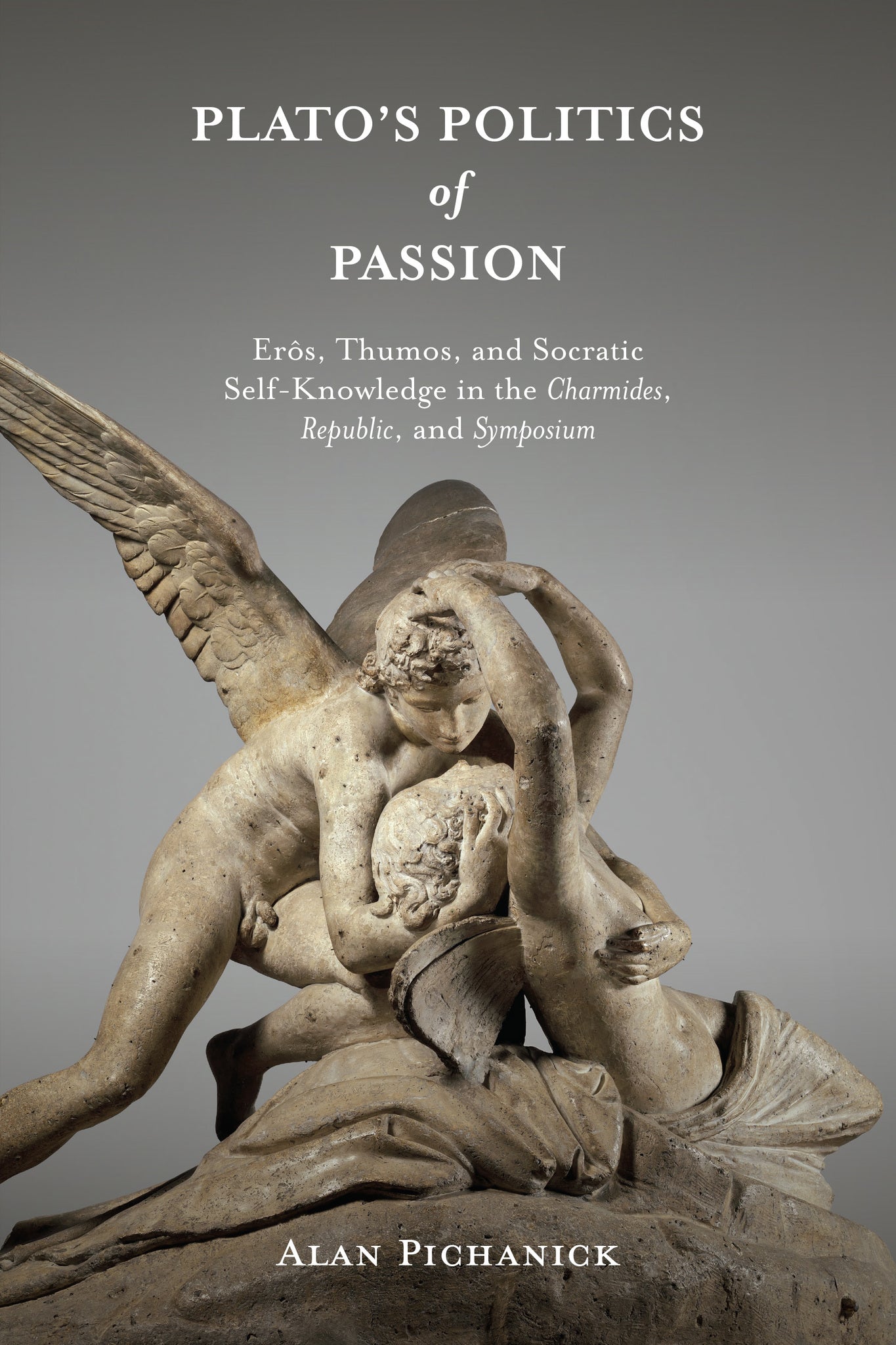We're sorry. An error has occurred
Please cancel or retry.
Plato's Politics of Passion

Some error occured while loading the Quick View. Please close the Quick View and try reloading the page.
Couldn't load pickup availability
- Format:
-
01 October 2025

An original reading of three Platonic dialogues concerned with the soul, tyranny, self-knowledge, and the beautiful.
Guided by the question "What is Socratic self-knowledge," this study begins with Plato's Charmides because it is within this work, more than any other, that the utility of self-knowledge becomes the predominant theme. In this dialogue, Socrates explores the possibility of the very culmination of his philosophical investigations—knowledge of ignorance. This happens through an investigation of the perplexing concept, sôphrosunê. Alan Pichanick's approach offers a new perspective upon the perplexing exploration of sôphrosunê in the Charmides by placing much greater emphasis on the neglected "erotic setting" in the dramatic introduction and argues that our reading of the rest of the dialogue should be done in light of this dramatic setting. The erotic setting of the Charmides combined with the discussion of philosophical wonder in the Symposium and tyrannical erôs in the Republic gives guidance about how to think about the potential connection between Socratic self-knowledge and knowledge of the good and also shows why the characters of Charmides and Critias fail to come to such knowledge. Here we have the Platonic diagnosis of the tyrant, whose soul never wonders at anything beyond itself.


"Pichanick's book stands to make a significant contribution to the study of the Charmides and to Plato scholarship more generally by underscoring the way in which sôphrosunê is entangled with eros. His argument about this oft-forgotten dialogue helps us solve problems in the interpretation of more well-known works, in particular the Republic and Symposium." — Michael Weinman, coauthor of The Parthenon and Liberal Education
Acknowledgments
Introduction
Part 1A: Socrates and Charmides on Sôphrosunê
1. Back from War (153a–153d)
2. Beautiful Charmides (154a–155e)
3. Zalmoxian Medicine and Looking within Charmides (155e–159a)
4. Charmides's First Definition — A Sort of Quietness (159b–160d)
5. Charmides's Second Definition — A Sense of Shame (160d–161a)
6. Charmides's Final Definition — Doing One's Own Things (161b–162c)
Part 1B: Thumos in the Republic and the Symposium
1. The Psychology of Thumos (Republic 4.437a–441c)
2. The Psychogenesis of Erôs: Aristophanes's Critique of Love of One's Own Things (Symposium 189c–193d)
3. The Thumotic Erôs of Charmides
Part 2A: Socrates and Critias on Sôphrosunê
1. Ugly Critias: Sôphrosunê as Doing One's Own Things (Part 2: 162c–163c)
2. Sôphrosunê as Self-Knowledge (163d–165b)
3. The Intentionality of Critian Self-Knowledge (165b–166c)
4. Socrates's Addition — Knowledge of What One Knows and Does Not Know (166c–166e)
5. Is Knowledge of Knowledge Possible? (167a–169c)
6. Is Knowledge of Knowledge Beneficial? (169d–173a)
7. Socrates's Beautiful Dream? (173a–174b)
8. Sôphrosunê as Knowledge of Good and Bad(174b–175a)
Part 2B: Thumos and Tyranny in Republic VIII–IX
1. The Psychogenesis of Thumos and the Decay into the Tyrannical Regime (Republic VIII)
2. The Psychogenesis of Thumos Part 2: The Decay of the Tyrant (Republic IX)
3. Three Critias the Tyrant
Part 3A: The Ending of the Dialogue and Socratic Sôphrosunê
1. Back to War — Ugly Critias and Charmides(175a–176d)
2. A Return to the Smaller Benefit of Sôphrosunê
Part 3B: Thauma and Sôphrosunê in the Republic and Symposium
1. The Theoros Returns (Republic 327a–328b and Symposium 172a–174a)
2. Erôs Is a Lack: Socrates Questioning Agathon (Symposium 199c–201e)
3. Erôs Is Between — Diotima Questioning Socrates(Symposium 201e–203a)
4. Diotima's Psychogenesis of Erôs (Symposium 203a–204d)
5. The Good of Erôs (Symposium 204c–206b)
6. Diotima's Ascent (Symposium 210a–212a)
7. Beautiful Socrates and the Connection between Sôphrosunê and Wonder
Concluding Remarks
Notes
Bibliography
Index



